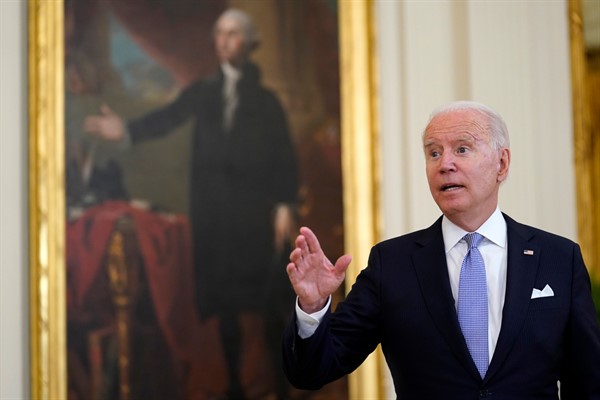This is the web version of our subscriber-only Weekly Wrap-Up newsletter, which uses relevant WPR coverage to provide background and context to the week’s top stories. Subscribe to receive it by email every Saturday. If you’re already a subscriber, adjust your newsletter settings to receive it directly to your email inbox.
Since President Joe Biden took office, one question has become central to assessing his management of U.S. foreign policy: Is the U.S.-China rivalry an ideological contest pitting democracy against authoritarianism, or is it a battle for global primacy involving hard-boiled power politics? The events in Tunisia this week, and Washington’s reaction to them, underscore the tensions and at times internal contradictions involved in any attempt to answer that question.
Since taking office, Biden has repeatedly placed the disparate challenges facing the United States, particularly when it comes to strategic competition with rivals like China and Russia, in the context of a broader battle between democracy and authoritarianism. He has emphasized the defense and promotion of democracy as a core plank of his administration’s foreign policy—even while acknowledging the need for the U.S. to restore its own democracy after the four years of Donald Trump’s presidency, culminating in the storming of the Capitol on Jan. 6. To this end, he has called for the world’s democracies to join together in a coalition to push back against the erosion of human rights and the rule of law across the world.

